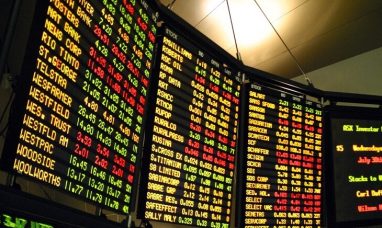The U.S. stock market showed signs of slowing momentum on Tuesday as major indexes drifted lower after rallying near record highs earlier this year. Investors are grappling with uncertainty surrounding tariffs, economic growth, and corporate earnings forecasts.
Market Performance Overview
As of early afternoon trading, the S&P 500 was down 0.3%, lingering about 3.2% below its all-time high. The Dow Jones Industrial Average dropped 89 points, or 0.2%, while the Nasdaq Composite slid 0.3%. These modest declines reflect a cautious tone on the U.S. stock market amid mixed signals from the economy and corporate America.
In the bond market, Treasury yields remained relatively stable with the 10-year yield edging up to 4.48% and the 2-year yield dipping slightly to 3.96%. The U.S. dollar also held steady against other major currencies following a brief spike triggered by Moody’s downgrade of the U.S. government’s credit rating outlook due to mounting debt concerns.
Impact on Key Sectors
Travel stocks were among the hardest hit, with shares of Airbnb (NASDAQ:ABNB) dropping 3.2%, Norwegian Cruise Line (NYSE:NCLH) falling 3.4%, and Las Vegas Sands (NYSE:LVS) losing 2.2%. Investors remain wary of consumer spending on vacations amid economic uncertainty.
On the other hand, D-Wave Quantum (NASDAQ:QBTS) surged 32.1% after unveiling a new quantum computing system capable of solving problems beyond classical computers’ reach. This spike highlights continued investor interest in cutting-edge technology companies.
Meanwhile, Home Depot (NYSE:HD) saw a 0.7% decline despite reporting better-than-expected revenue for the start of 2025. The home improvement giant missed profit forecasts slightly but reaffirmed its full-year profit and sales growth guidance, bucking the trend of companies lowering expectations due to tariff impacts and economic unpredictability.
Competitor Lowe’s (NYSE:LOW) and retail giant Target (NYSE:TGT) are scheduled to report earnings soon, and investors will be watching closely for signs of consumer strength or weakness.
Tariff and Economic Outlook
The ongoing uncertainty around U.S. tariffs remains a key drag on investor confidence. President Donald Trump’s administration has imposed tariffs on several trading partners but has also rolled back or delayed some measures. Traders hope that further trade agreements will ease tensions and reduce tariff levels, but no guarantees exist.
Economists warn that persistent tariffs could push the U.S. economy into recession, especially since the government’s ability to provide fiscal stimulus is more limited than in previous downturns due to higher debt levels. According to James Egelhof, chief U.S. economist at BNP Paribas, less fiscal space could mean a deeper and longer recession, placing more burden on the Federal Reserve to support growth via interest rate cuts.
Global Central Bank Actions
While the U.S. Federal Reserve has maintained a cautious approach, central banks globally are easing monetary policy to bolster growth. China’s central bank recently cut its loan prime rates for the first time in seven months, signaling a desire for more stimulus as the country grapples with the impact of tariffs.
The Reserve Bank of Australia also cut interest rates to 3.85%—its second cut this year—citing inflation within target levels and ongoing economic challenges.
These moves have lifted global markets, with Hong Kong’s Hang Seng Index jumping 1.5% and shares in China’s Contemporary Amperex Technology Co. Limited (CATL) soaring 16.4% after a highly successful IPO raising about $4.6 billion. CATL’s shares also gained 1.2% on Shenzhen’s exchange after a dip earlier in the day.
What Investors Should Watch
The U.S. stock market’s modest pullback reflects a balance between optimism from corporate earnings and caution over economic and geopolitical risks. Treasury yields, trade policy developments, and upcoming earnings reports from retailers like Lowe’s (NYSE:LOW) and Target (NYSE:TGT) will remain key focus areas.
Investors should monitor tariff developments closely, as prolonged trade tensions could disrupt global supply chains and consumer spending. Additionally, global central bank policies will influence liquidity and risk appetite across markets.
Conclusion: Navigating the U.S. Stock Market in Uncertain Times
The U.S. stock market faces mixed forces as investors weigh strong earnings reports against ongoing trade disputes and economic uncertainties. While technology innovators like D-Wave Quantum (NASDAQ:QBTS) capture attention, travel and retail sectors experience headwinds.
Careful portfolio diversification and staying informed on tariff policies and central bank moves can help investors navigate this evolving landscape.
Featured Image – Freepik








